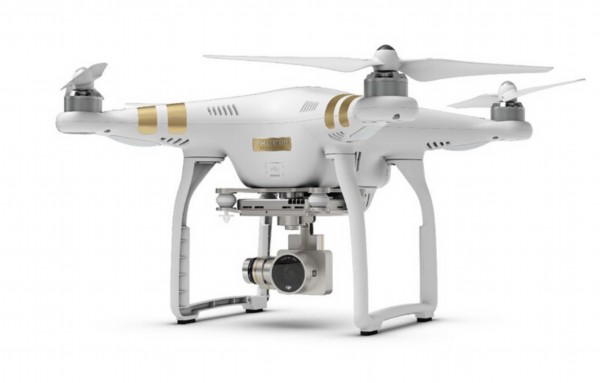

BEIJING, Jan. 3 -- From a company founded by a college student in 2006 to a global leader in the civilian drone industry, the story of Da-Jiang Innovations (DJI) illustrates just what a true commitment to innovation can do.
"The key to innovation is not 1-to-n, it's the 0-to-1 part that makes all the difference," said Wang Tao, DJI's founder.
"First-mover advantages are difficult to lose when you are in the market with groundbreaking technology." he said.

In 2010, DJI sales were a respectable 3 million yuan (460,000 U.S. dollars). In 2014, that number jumped to nearly 3 billion yuan. DJI is on track to make a billion dollars in 2015.
The Shenzhen company sells nearly 70 percent of the world's civilian drones, and 80 percent of its revenue is generated outside China.
DJI's success story is not an isolated case. Xiaomi, a mobile phone firm founded in 2010 became the third-biggest seller of mobile phones worldwide in 2014, the same year that Xiaomi came 35th on a list of the world's most innovative companies compiled by The Boston Consulting Group.
Aside from its low price, Xiaomi's popularity can be explained by its innovative MIUI OS which was more smooth than the original Android OS.
As Xiaomi took the phone market by storm, it continually looked to the future and now offers a diverse range of Internet of Things products that interact with its mobiles including an air purifier, bathroom scales, blood pressure monitors, light bulbs, TVs and a webcam.

The success of Xiaomi and DJI boils down to continually reinventing themselves. The search for new technology and new ideas has become a palpable tide in China as the era of cheap labor and fast exports is washed away.
Innovation was put in first place in China's plan for the next five years, a plan with the grand goal of doubling 2010 GDP and per capita income of both urban and rural residents.
The government set aside 40 billion yuan last year to nurture startups. In the first three quarters of 2015, 10,000 new companies were registered each day.
As China becomes prosperous and more families, even those from rural backwaters, have access to higher education, people are becoming more confident risk-takers. Stable government jobs have gradually lost their shine with the chance of making a new product and reaping rich rewards within the reach of many.
In 2014, venture capitalists pumped a record 100 billion yuan into startups. The figure for 2011 was 30 billion yuan, but there is still ample room for improvement.
Despite being the world's second biggest gross R&D spender behind the United States, China still lags behind developed countries which normally spend 3 to 4 percent of their GDP on R&D. Last year, expenditure in research and development reached 1.3 trillion yuan, up 9.9 percent from 2014, and more than 2 percent of GDP, only the second straight year above the 2-percent mark.
 Are these the world’s scariest landing strips?
Are these the world’s scariest landing strips? In pics: Left behind children in China
In pics: Left behind children in China Eight modern day engineering marvels of China
Eight modern day engineering marvels of China Chinese beauty with sexiest bottom
Chinese beauty with sexiest bottom Charming female bodybuilders of Chengdu University
Charming female bodybuilders of Chengdu University Polish sports stars strip off for risqué calendar
Polish sports stars strip off for risqué calendar Spectacular aerial photos of the Three Gorges
Spectacular aerial photos of the Three Gorges Contestants of Mrs. Globe pose for photo in Shenzhen
Contestants of Mrs. Globe pose for photo in Shenzhen
 Bikini models attend hot pot banquet in Hefei
Bikini models attend hot pot banquet in Hefei Top 20 hottest women in the world in 2014
Top 20 hottest women in the world in 2014 Top 10 hardest languages to learn
Top 10 hardest languages to learn 10 Chinese female stars with most beautiful faces
10 Chinese female stars with most beautiful faces China’s Top 10 Unique Bridges, Highways and Roads
China’s Top 10 Unique Bridges, Highways and Roads Face of China 2015
Face of China 2015 A hard year 2015’s stories
A hard year 2015’s stories Smartphone makers jockey for dominance of Chinese market
Smartphone makers jockey for dominance of Chinese market Film star's posts stirs debates on Chinese, foreign medical services
Film star's posts stirs debates on Chinese, foreign medical servicesDay|Week